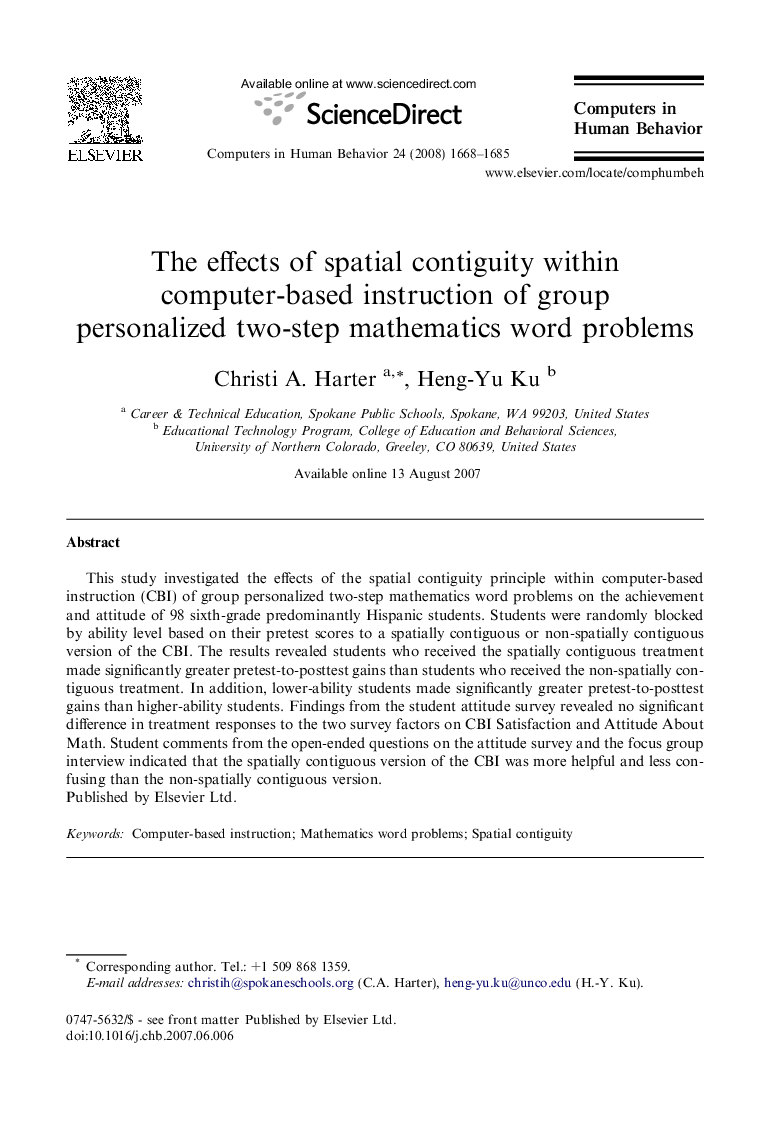| Article ID | Journal | Published Year | Pages | File Type |
|---|---|---|---|---|
| 352241 | Computers in Human Behavior | 2008 | 18 Pages |
This study investigated the effects of the spatial contiguity principle within computer-based instruction (CBI) of group personalized two-step mathematics word problems on the achievement and attitude of 98 sixth-grade predominantly Hispanic students. Students were randomly blocked by ability level based on their pretest scores to a spatially contiguous or non-spatially contiguous version of the CBI. The results revealed students who received the spatially contiguous treatment made significantly greater pretest-to-posttest gains than students who received the non-spatially contiguous treatment. In addition, lower-ability students made significantly greater pretest-to-posttest gains than higher-ability students. Findings from the student attitude survey revealed no significant difference in treatment responses to the two survey factors on CBI Satisfaction and Attitude About Math. Student comments from the open-ended questions on the attitude survey and the focus group interview indicated that the spatially contiguous version of the CBI was more helpful and less confusing than the non-spatially contiguous version.
